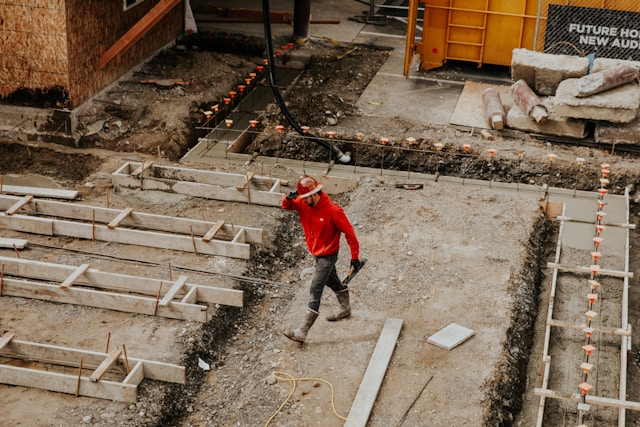- Change theme
How Commercial General Contractors Streamline Construction Projects for Small Businesses

Launching or expanding a small business often comes with a long list of challenges.
01:54 05 August 2025
Launching or expanding a small business often comes with a long list of challenges—finding the right location, setting up operations, hiring staff, and managing budgets. But one area that often surprises first-time business owners is the complexity of commercial construction. Whether it's building out a new space or remodeling an existing one, the process involves dozens of moving parts.
This is where an experienced commercial general contractor becomes essential. More than just overseeing a construction site, a good contractor helps simplify the entire process—from planning and permits to finishes and final inspection.
Here’s a closer look at how commercial general contractors streamline construction projects and why that matters so much for small business owners.
1. They Clarify the Project Scope from Day One
Before any work begins, a good general contractor takes the time to understand the business’s goals and how the physical space needs to function. This early-phase collaboration helps define the scope clearly. By outlining expectations upfront, business owners avoid costly changes and miscommunications later in the process.
2. They Manage Permits and Inspections
Every city has building codes, permits, and inspection requirements. Navigating these regulations can be time-consuming, especially for owners unfamiliar with commercial development. Contractors who work regularly in a specific region know the rules and relationships that can help avoid permitting delays and inspection surprises.
3. They Coordinate Subcontractors and Vendors
Most construction projects require electricians, plumbers, framers, drywall installers, painters, and more. Rather than expecting a business owner to hire and manage all of these trades, a general contractor handles the coordination. They know which subcontractors are reliable, how to schedule them efficiently, and how to keep everyone aligned.
4. They Keep Timelines and Budgets on Track
Time is money—especially for small businesses eager to open their doors. General contractors use scheduling tools and cost tracking systems to monitor the project closely. If a delivery is delayed or an unexpected issue arises, they adjust proactively to keep everything moving without blowing the budget.
5. They Provide Clear Communication
One of the top reasons construction projects become stressful is lack of communication. Business owners often feel left in the dark. Reputable contractors prioritize regular updates and transparency. This means owners always know what’s happening on-site and can make timely decisions with confidence.
6. They Help Owners Make Smart Design Choices
Not every business owner has experience in space planning or material selection. A good contractor offers guidance on layouts, finishes, and materials that support long-term durability and functionality. Whether it’s adding plumbing for a salon or creating a more flexible floor plan for a growing practice, their insights can make or break the usability of the space.
7. They Plan for Growth, Not Just Day One
Great contractors think beyond the immediate project. They help clients consider how their space will evolve over time—suggesting infrastructure upgrades, modular layouts, or easy expansion options. This future-focused mindset saves money and hassle down the road.
8. They Stick Around After the Job is Done
Some projects end when the paint dries, but the best contractors remain available for follow-up needs. That might include small adjustments, guidance for future upgrades, or help after unexpected events like water or storm damage. This kind of long-term relationship is especially valuable for businesses planning to scale.
Types of Businesses That Benefit Most
While any commercial project can benefit from a general contractor, small businesses often gain the most. These include:
- Professional service offices (law, insurance, accounting)
- Health and wellness clinics
- Fitness and personal training studios
- Childcare and tutoring centers
- Retail boutiques and franchises
- Beauty salons and spas
These businesses typically have specialized needs and modest budgets, making efficiency and good planning even more critical.
Final Thoughts
The difference between a smooth construction experience and a stressful one often comes down to the general contractor. For small business owners navigating construction for the first time, working with a knowledgeable, communicative, and detail-oriented partner can make all the difference.
By streamlining workflows, managing the team, and keeping the project on track, a great contractor frees up business owners to focus on what they do best—serving their clients and growing their operations.
